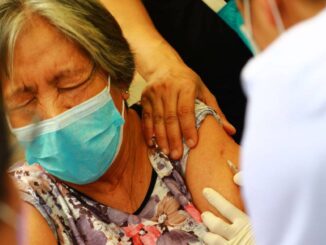
HEALTH experts are alarmed by the invasive meningococcal disease (IMD), with Serogroup B identified as the leading cause, accounting for approximately 68 percent of cases over the years.
This serious illness has drawn concern due to its high fatality rate and rapid progression.
In a media roundtable discussion earlier this week, pediatric infectious disease specialists Drs. Lulu Bravo and Anna Ong-Lim highlighted the life-threatening nature of IMD, especially if untreated.
Statistics show that 1 in every 2 cases (50 percent) of IMD in the Philippines results in death, underscoring the urgent need for heightened public health measures.
Ong-Lim pointed out that IMD is particularly dangerous for young children, who are among the most vulnerable groups.
Symptoms can initially appear nonspecific — such as fever, headache and fatigue — but the disease can escalate to critical stages within 24 hours, potentially causing death or severe complications such as brain damage, hearing loss, or limb amputation.
“The disease is unforgiving,” said Bravo. “Its rapid progression leaves little time for intervention, which is why early detection and prevention are critical.”
In the Philippines, IMD remains a significant public health challenge. While vaccines for Serogroups A, C, W, and Y are available, addressing Serogroup B poses unique difficulties.
Due to its distinct bacterial structure, Serogroup B requires a separate vaccine currently less accessible in the country.
Ong-Lim explained that the lack of comprehensive data hinders the development of targeted prevention and response strategies.
“Without robust epidemiological data, we cannot design effective programs to reduce the burden of the disease,” she said.
Both experts emphasized that increasing public awareness is crucial but difficult. Meningococcal disease often flies under the radar due to its nonspecific early symptoms and the mistaken belief that vaccines for other serogroups provide complete protection.
Bravo called for strengthened collaboration between government health agencies, the private sector, and the medical community.
“Public education campaigns, improved diagnostic capabilities, and better vaccine availability are key in protecting Filipinos, especially our children,” she said.
The Department of Health has vaccination programs targeting meningococcal disease. However, experts recommend expanding these initiatives to include coverage for Serogroup B and incorporating routine meningococcal vaccination into the National Immunization Program.
Research and partnerships with global health organizations are also essential to bolster local knowledge and resources.
“The fight against IMD is a shared responsibility,” said Ong-Lim.
Bravo and Ong-Lim encouraged the public to recognize the early symptoms of meningococcal disease, including fever, severe headache, nausea and rash.
They also called on parents to seek immediate medical attention for suspected cases and to stay informed about available vaccination options.
They expect that with increased awareness, robust data collection, and enhanced prevention strategies, the Philippines can mitigate the devastating impact of meningococcal disease.





Be the first to comment